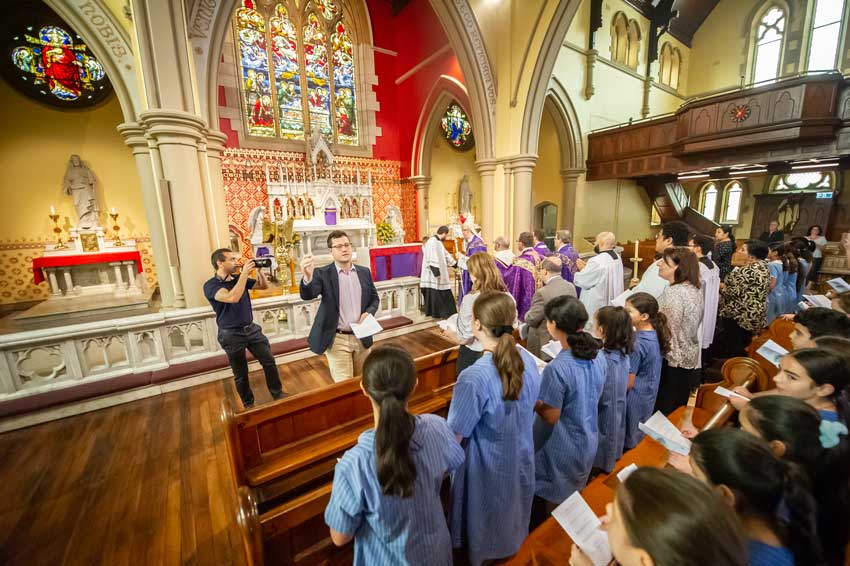
We have a problem with the music in many churches
One of the funniest Catholic media pieces I’ve read recently was one from the US Catholic bishops’ doctrine committee on the dangers of awful Catholic hymns.
It’s not intentionally funny; it’s actually quite tragic. But as I read it, I wished there were a Completely Obvious Award that we could give the US bishops for finally noticing what most of us have known for decades.
Hymns are certainly different today
I grew up with some of the most awful church music imaginable. But in the 1970s, most of them were reasonably sound in terms of doctrine. The hymns talked about the Body and the Blood, and even mentioned sin sometimes.
“I grew up with some of the most awful hymns imaginable, but in the 1970s, most of them were reasonably sound in terms of doctrine.”
The real musical pap seems to have evolved slightly later, where all mention of anything Catholic was effectively washed out and replaced by Anodyne Jesus.
The words ‘son’ and ‘man’ were also washed out of the hymns and replaced with neutral and inclusive language. The US bishops’ committee focused particularly on the poor Eucharistic theology of most modern hymns.

They warned that these “would erode Catholic sensibility regarding the fullness of Eucharist teaching, on the Mass as sacrifice and eventually on the church, as formed by that sacrifice.”
Who knew that singing about bread and wine and a special meal would make you believe that Holy Communion was just bread and wine and a special meal? The bishops also noted that Catholic ideas about the Trinity are usually poorly expressed, as well as ideas about the Church, the Jewish people, Christian anthropology, and God and His relationship with us.
Hymns should reflect what’s most important to us, and the Church
So really, everything that’s actually important to us as Catholics is not being truthfully reflected in our hymns.
I defy any reader to tell me they haven’t experienced this in the last 30 years. Everyone out there has their particular pet peeves with Catholic hymns that are plain wrong about many things, as well as musically the equivalent of a condensed milk sandwich.

The priesthood also suffers from bad hymns – and not just wishing for earplugs or an early death. The bishops state that “these hymns correspondingly also downplay or eliminate entirely reference to the sacrifice of Christ, his priesthood, and his status as both priest and victim, as well as to the role of the ministerial priesthood in the church”.
“everything that’s actually important to us as Catholics is not being truthfully reflected in our hymns. I defy any reader to tell me they haven’t experienced this in the last 30 years.”
The US bishops offer some guidelines for improving matters. We should ask ourselves: Is the hymn in conformity with Catholic doctrine? Is the hymn expressed in image and vocabulary appropriately reflective of the usage of Scripture and the public liturgical prayer of the church?
We also already know that this rules out practically the entire contents of Gather Australia, for starters. But unfortunately, the liturgy committee usually consists of the two scariest people in the parish, and neither of them is the parish priest.
In 2009 our own church leadership had a go at making a list of recommended hymns and liturgical songs. If anyone has time, I think this list could probably use a thorough vetting in the light of these more stringent guidelines.
Dr Philippa Martyr is a Perth-based historian, lecturer and researcher. She can be contacted at: [email protected]
Related articles:
